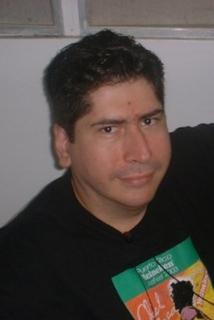President Bush Discusses Health Care
 President Bush Discusses Health Care
President Bush Discusses Health Care These men and women have different specialties, different backgrounds, and different ideas, but they all agree on an important fact: America's health care system is in need of serious reform. And I agree. The American people share that belief, as well. In my conversations with Republicans and Democrats and business owners and workers, I hear the same concerns: America's health care is too costly, it's too confusing; it leaves too many people uninsured.
The fundamental question is, what should we do about it? On that question, our nation has a clear choice. One option is to put more power in the hands of government by expanding federal health care programs and empowering bureaucrats to make medical decisions. The other option is to put more power in the hands of individuals, by making private health insurance more affordable and accessible and empowering people and their doctors to make the decisions that are right for them. That's the divide.
Debate between these two options is now beginning to play out on Capitol Hill. Democrat leaders in Congress are considering a massive expansion of government health care through a program called S-CHIP, which stands for State Children's Health Insurance Program. This program was designed to ensure that poor children without health insurance receive the medical care they need. I support S-CHIP for that purpose. I think it makes sense to have a program to help poor children get the health insurance they need.
My budget increases funding for the poor children in S-CHIP. The problem is that Democrats want to expand S-CHIP far beyond its original intent. If their proposal becomes law, S-CHIP would expand its reach to include children from family that earn as much as $80,000 a year, as well as some adults. This is a massive expansion of the program.
And as a result, many of these people would give up the private health insurance they have now as they move to government health care. In fact, a recent study estimated that as many as half the children enrolling in S-CHIP would drop their private health coverage, which is contrary to the program's original purpose. The Democrats' proposal is part of a larger strategy.
At the same time that they try to expand S-CHIP to older citizens, they are trying to expand Medicare to younger citizens. Their goal is to take incremental steps down the path to government-run health care for every American. It's the wrong path for our nation.
And there's a better way forward. We strongly believe that the S-CHIP proposal put forward by some Democrats in Congress needs to be resisted. And here's what we believe. We believe there's a better alternative. Instead of expanding S-CHIP beyond its purpose, we should return its focus to the children most in need. And instead of encouraging people to drop private coverage in favor of government plans, we should work to make basic private health insurance affordable for all Americans.
My administration is pursuing this goal in a variety of innovative ways. We created health savings accounts which allow people to save, tax free, for routine medical expenses and help reduce the cost of private insurance. We're working to pass association health plans so that small businesses can insure their workers with private coverage at the same discounts that big businesses get. We're working to stop junk lawsuits to drive up private insurance premiums and good doctors out of practice.
The best way to make private insurance more affordable, however, is to reform the tax code. Under current law, workers who are fortunate enough to get health insurance from their employers receive a tax benefit. But if you buy insurance on your own, you get no tax benefit.
That's unfair, so I propose leveling the playing field. Under my plan, every family with private health coverage will receive a standard tax deduction of $15,000. That means families could deduct $15,000 from their income before they pay taxes, no matter where they get their health insurance. I'm pleased that many health care experts and members of Congress share the objective for ending a bias in the tax code.
By reforming the tax code, it would help more than 100 million people who are now covered by employer-provided insurance reduce their tax bills. Those who now purchase health insurance on their own would save money on their taxes for the first time. As many as 20 million others who have no health insurance would purchase basic coverage.
We're at a decisive moment in the debate over health care. The choices we make now will set the direction of medical care in America for years to come. I'm going to continue to work with members of both parties to look past tired, old proposals that make bigger government programs the solution to every problem. I'm going to continue to push for new and innovative ways to help every American afford basic private health insurance. I will continue to put my trust in the good judgment of the American people, and I'll put my trust in the finest system of private medicine in the world.
I want to thank you all for coming, thanks for your interest. Thank you. (Applause.)
















